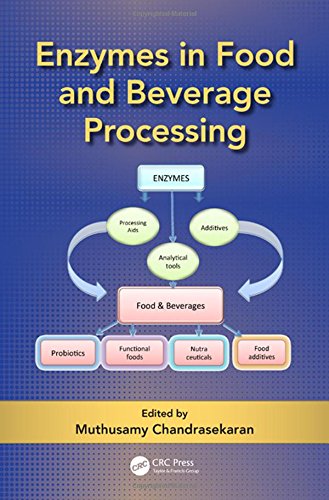

Most ebook files are in PDF format, so you can easily read them using various software such as Foxit Reader or directly on the Google Chrome browser.
Some ebook files are released by publishers in other formats such as .awz, .mobi, .epub, .fb2, etc. You may need to install specific software to read these formats on mobile/PC, such as Calibre.
Please read the tutorial at this link: https://ebookbell.com/faq
We offer FREE conversion to the popular formats you request; however, this may take some time. Therefore, right after payment, please email us, and we will try to provide the service as quickly as possible.
For some exceptional file formats or broken links (if any), please refrain from opening any disputes. Instead, email us first, and we will try to assist within a maximum of 6 hours.
EbookBell Team

4.3
88 reviewsBiotechnology, particularly eco-friendly enzyme technologies, has immense potential for the augmentation of diverse food products utilizing vast biodiversity, resolving environmental problems owing to waste disposal from food and beverage industries. In addition to introducing the basic concepts and fundamental principles of enzymes, Enzymes in Food and Beverage Processing covers development of novel enzymes with desired properties and functions for use in food industries and use of enzymes as analytical tools for monitoring in food and beverage processing. It also details the application of enzymes in different food and beverage industries, recent advances in enzymology, functional foods, probiotics, and food additives.
The book examines the scope, emerging enzyme technologies, and applications of enzymes in processing of various foods and beverages and in developing novel food products. It covers emerging enzyme technologies and enzyme engineering techniques for improved and enhanced performance of enzymes in food and beverage processing. The book discusses the scope for deriving new range of food products such as functional foods, nutraceuticals, and probiotics using enzymes as well as the scope for application of enzyme inhibitors and enzyme mediated biotransformation’s for improved enzyme processing of food and beverages.
In the context of growing environmental problems and need for sustainable use of available natural resources, there is an increased need to implement valorization strategy in food and beverage processing industries which generates voluminous byproducts and wastes. Hence, the book also examines the use of enzymes in valorization of food processing wastes, besides the research gaps and future trends in the field that promote applications of enzymes. It examines the use of enzymes in food and beverage processing from the various food industries point of view and enables a deep understanding of the latest developments in modern food technologies and